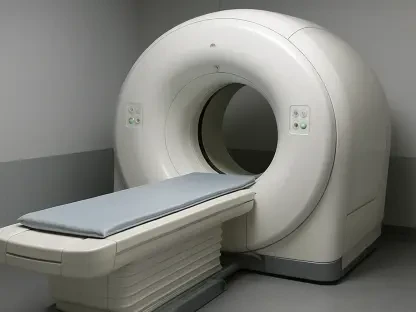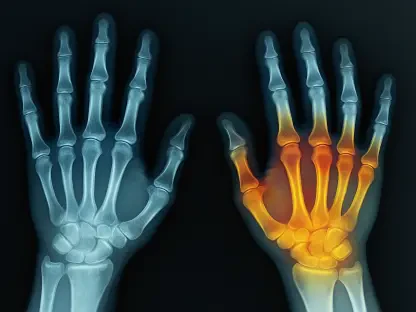In the evolving landscape of Malaysia’s healthcare system, a unique initiative has emerged that aims to harmonize public and private sectors for improved health outcomes. Known as Rakan KKM Sdn Bhd, this innovative enterprise involves a business model that leverages public resources at cost price to deliver private healthcare services. By doing so, it seeks to combat escalating medical inflation while enhancing the infrastructure and quality of Malaysia’s public healthcare system. The deep-seated objective is not only to generate profits for reinvestment but also to provide tangible support to healthcare workers through better compensation strategies, thereby retaining valuable clinical talent within the country.
The Business Model of Rakan KKM
Utilizing Public Resources for Private Gain
Rakan KKM is built around a strategic collaboration with Malaysia’s public health sector, tapping into the Ministry of Health (MOH) for resources. The organization purchases supplies like consumables and medical devices at cost and leases government facilities and equipment, thus significantly reducing operational expenses. This model capitalizes on using public resources cost-effectively without incurring the higher prices generally seen in the private sector. By keeping procurement and operational costs low, Rakan KKM ensures financial sustainability while still maintaining high-quality service provision.
The pricing structure involves markup strategies where Rakan KKM applies a 100% markup on consumables and medical necessities. These marked-up fees are intended to generate substantial profit margins, which Rakan KKM then reinvests in public healthcare improvements. Funds generated from these markups are used to enhance facilities like hospital beds or to augment specific services such as mental health provisions, addressing areas that require immediate attention and upgrades. This business model thus balances profit generation with societal contributions, aiming to create a self-sustaining cycle whereby public healthcare systems are continuously improved through private enterprise.
Financial Mechanisms and Objectives
Functioning as a private entity, Rakan KKM is a Sdn Bhd company, wholly owned by the Ministry of Finance Incorporated (MOF Inc.). This structural choice serves to attract investments from government-linked investment companies (GLICs), providing a robust financial framework while circumventing common bureaucratic constraints. The private limited company model facilitates targeted revenue ring-fencing, ensuring that funds raised through Rakan KKM are directly channeled back into enhancing healthcare infrastructure rather than being absorbed into the general governmental treasury.
The organization actively pursues specific financial objectives that align with its mission of public health enhancement. With constitutional limitations on earmarking government revenue, notably seen in debates surrounding vape taxes, Rakan KKM focuses on maximizing the impact of its financial resources within set legal frameworks. Profits are strategically earmarked for healthcare developments in underserved areas like Sabah and Sarawak, striking a balance between generating revenue and fulfilling societal health obligations. This innovative financial model showcases a nuanced approach to balancing public responsibilities with private sector efficiencies.
Operational Strategy and Workforce Dynamics
Elective Medical Services Access
To streamline public healthcare delivery, Rakan KKM emphasizes an operational strategy centered around elective medical services. Leveraging weekend operating room sessions, the organization provides elective procedures that typically have long wait times in public hospitals. For example, surgeries for conditions like trigger finger or bunions, which might otherwise require prolonged waits in the public system, can be swiftly addressed through Rakan KKM’s private avenues. This model caters to patients willing to pay for expedited care, allowing for faster access compared to traditionally lengthy public hospital waiting lists.
This elective service approach aids in alleviating pressure on public healthcare systems, managing patient load more effectively by offering alternative paths for those who can afford it. It also highlights the organization’s role in bridging gaps in accessibility by providing choices for expedited treatment, which can be particularly beneficial in scenarios of surgical backlogs. Through careful planning and allocation of medical resources, Rakan KKM seeks to enhance healthcare delivery, offering quicker resolutions for non-urgent medical cases that might otherwise strain the public system.
Retention and Compensation of Healthcare Staff
A significant part of Rakan KKM’s mission involves addressing the retention of skilled healthcare workers, a persistent challenge within Malaysia’s public health sector. The initiative offers additional compensatory mechanisms to specialists and healthcare professionals, providing financial incentives for those willing to work “extra time” or return post-retirement. As the Public Service Department remains hesitant to increase salaries or allowances, Rakan KKM’s model provides an alternative means of rewarding medical professionals.
Rakan KKM ensures equitable compensation by standardizing pay across various medical roles, thus addressing disparities seen in prior systems where only specific surgeons benefited from extra payments. This equitable distribution of compensatory earnings also appeals to healthcare professionals considering private sector opportunities, thereby retaining talent within the public sphere. The promise of additional income, tied to extended working hours and specialized services, also incentivizes retired specialists to re-engage with the healthcare system, benefiting overall healthcare delivery.
Addressing Challenges and Public Perception
Navigating Public Concerns and Equity
As Rakan KKM continues to reshape the landscape of Malaysia’s public-private healthcare, it faces scrutiny regarding potential preferential treatment for wealthier patients. Critics argue that the initiative might allow affluent patients to circumvent normal queues in public hospitals, thereby exacerbating inequalities. However, Rakan KKM maintains a stance of transparency by asserting that no gratuitous advantages are gained from government affiliations. Instead, the organization emphasizes its role as a facilitator of systemic improvement, reinvesting profits into public infrastructure without leaning on free public resources.
Communicating this effectively to the public is pivotal in garnering support, emphasizing that the growth in public sector capabilities, fueled by these private profits, ultimately benefits all citizens. Addressing public concerns means ensuring all services are rendered with clear conditions and reinforcing that equitability in healthcare access is prioritized. The strategic focus remains on generating funds to uplift the general standard of public health services, thereby neutralizing criticisms through demonstrable enhancements in the healthcare delivery system.
Implications for Private Healthcare Costs
On a broader scale, Rakan KKM plays a critical role in addressing Malaysia’s medical inflation dilemma. By offering private services at reduced rates compared to conventional private healthcare establishments, Rakan KKM aims to stabilize rising health-related costs. The initiative is part of the larger Reset framework, which positions itself against climbing medical insurance premiums and hospital bills affecting myriad stakeholders. As a competitive force, Rakan KKM’s reduced charges may attract out-of-pocket-paying patients, providing an attractive alternative to full-scale private hospitals.
The initiative is positioned as a market disruptor, potentially balancing out demand and supply in the private sector, leading to moderated price increments over time. Rakan KKM’s activities encourage innovation within healthcare economics, catalyzing a necessary conversation about sustainable healthcare practices. While fulfilling a tangible need for expedited healthcare services, it provides insight into potential pathways for larger systemic changes within Malaysia’s healthcare economics, signaling a future where healthcare access and affordability may realign with public expectations.
The Future of Rakan KKM and Malaysian Healthcare
In Malaysia, the healthcare system is undergoing significant transformation with the emergence of a novel initiative called Rakan KKM Sdn Bhd. This effort aims to harmonize the public and private sectors, ultimately improving health outcomes for the population. The organization employs a business model that utilizes public resources at a cost-effective price to provide private healthcare services. This strategy addresses the issues of rising medical inflation and seeks to ameliorate the infrastructure and quality of Malaysia’s public health services.
The core goal of this initiative extends beyond merely generating profits for reinvestment. An important aspect is its commitment to supporting healthcare professionals through enhanced compensation strategies. By doing so, Rakan KKM strives to retain crucial clinical talent within the country, ensuring that skilled healthcare workers remain in Malaysia to benefit the local healthcare system.
This approach reflects a forward-thinking perspective, recognizing the importance of balancing financial sustainability with the need to support healthcare workers adequately. Ultimately, Rakan KKM Sdn Bhd is positioned as a catalyst for positive change in Malaysia’s healthcare environment, navigating the complexities of public-private collaboration to foster improved health services and outcomes for all citizens.









